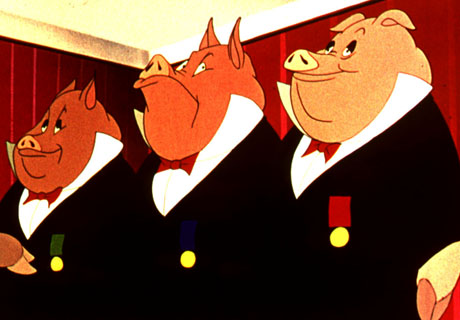The PR campaign may have hit a snag though as the site Torrent Freak has been on something of a roll with publishing internal emails about some of their more high-profile cases. These internal emails almost all consist of briefings and suggestions about how to present their (The MPAA) side of the story. What is funny is that they all sound the same you can hear the same comments and statements reflected across multiple cases even going back to the MPAA and RIAA’s attempts to attack individuals for “infringement” (and asking for hundreds of thousands of dollars).
Here is a great example; “This case isn’t about Internet freedom. It’s about a man profiting from theft.”
That line was used for The TVShack case and also thrown around in the Megaupload case.
“This case isn't about Internet freedom," says Marc Miller, senior vice president of the group. "It's about a career criminal and his associates profiting by stealing the hard work of the people who make creative works audiences love.”
You would think they would at least try not to use the same wording with the names changed, but then again they still think that their heavily inflated numbers work to sway the argument of the amount of money lost each year to piracy. The copyright industry simply does not get the culture they are operating in and the way the information propagates around the world. The US government agencies that are marching to their tune are also not exactly up to scratch on this either. We are guessing that someone did not think that the news about Illegal warrants, improper removal of evidence, and the many other interesting twists in this case would go viral. I think you would be hard pressed to find someone that does not know that the US has acted improperly in the Megaupload case. This knowledge means that more people are going to be watching other cases and looking for the same patterns.
In the TVShack case the MPAA is actually still trying to extradite the owner Richard O’Dwyer for something that has precedent showing it is not illegal. Judge Richard Posner has already ruled on this and found that a site is not responsible for links posted by its members regardless of any knowledge of infringement. These little bumps in the road (like the actual laws) are why the MPAA needs to try and push the criminal angle even if they have to make up numbers (and claim that they have a high Alexa score). Right now the MPAA would like you to believe that TVShack is making about $230,000 per year, but other sources do not seem to agree with that claim. The site’s three month Alexa rating is just a hair under 300k which is not a stellar ranking for what the MPAA is claiming is a leading piracy site. It also looks like the MPAA might have used a website value calculator instead of actually finding out how much the site made in real revenue (most site estimators give TVShack about $250,000 in value based mostly on social bookmarking).
The MPAA is also trying to discredit the support that O’Dwyer has received (just like they did with Steve Wozniak’s support for Kim Dotcom). They have called the Petition started by Wikipeida founder Jimmy Wales “presumptuous”. They argue that he cannot represent the general public “because the ‘general public’ includes the hundreds of thousands of creators and makers who create and make the compelling entertainment and content that virtually all of us enjoy on a daily basis. Their hard work deserves to be protected.” I wonder if they mean that same “hundreds of thousands of creators and makers” that also used Megaupload to store their creations? You know the same group that can no longer even access their work thanks to the efforts of the MPAA and RIAA.
The problem with the copyright industry’s methods is that they are transparent in the extreme and are the same ones they keep claiming time and time again without any real evidence of harm. The only thing they have going for them (the MPAA and others) is that they clearly have many politicians and judges on their side. They have spent a considerable amount of money and effort to make sure they have support in the right places. This have given them the impression that they do not have to worry about the actual laws, but only need to try and convince the public and media that they are in the right.
Fortunately, as with almost every company that has tried this approach, the truth will eventually get out. We have a feeling that the evidence being used against TVShack is about as trumped up as the evidence being used against Megaupload and Kim Dotcom. After all it is their pattern, if they do not have any real evidence they simply make it up and trust that the system will allow them to use it. We will continue to watch both the Megaupload and TVShack cases as they proceed and are certain that more “less-than- legal” behavior will show up and probably soon.
Discuss this in our Forum




